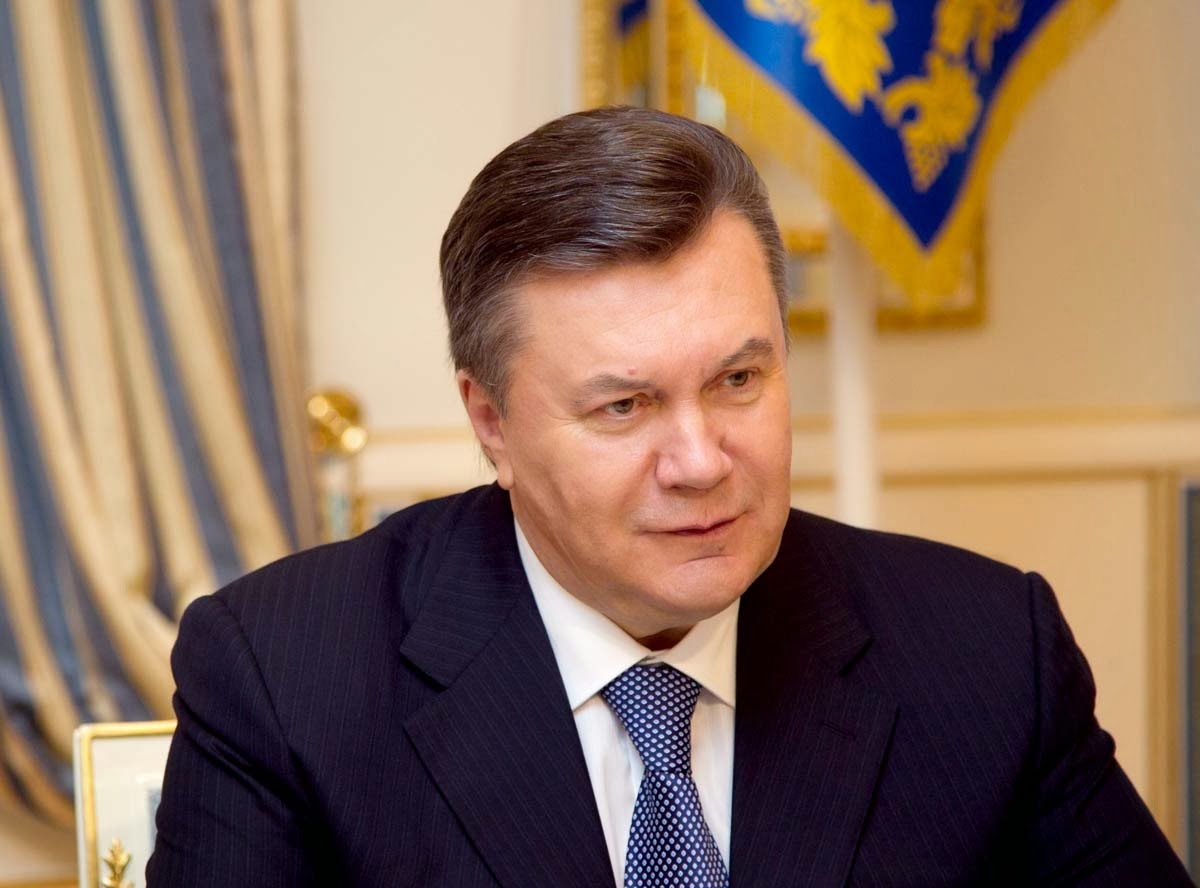
Anthony T. Salvia
Director, American Institute in Ukraine
Ukraine – or at least Kiev – is once again in the throes of a street mobilization claiming to represent "the people” of what remains a deeply divided country. The protesters demand that President Yanukovich sign the vexed AA/DCFTA with the European Union (EU). They are also calling for the overthrow of the president and the prime minister, and have shown themselves willing to engage in illegal actions, such as storming government buildings, that in the U.S. would get you thrown in jail for decades on end.
For all of that, Yanukovich's rejection of the AA/DCFTA, as written, was rational (it offered Ukraine little compared to the Eurasian deal), in the national interest (all the benefits of the AA/DCFTA went to Europe, while Ukraine got the scraps from its would-be master's table), and consistent with the foreign policy views he ran on in 2010, and for which the majority of Ukrainians voted (multivectorism).
Thus, his decision, whether you agree with it or not, is consistent with "European values” as people usually understand that term -- constitutional, democratic, and moderate. He has said repeatedly the door to Europe remains open, although insists on greater reciprocity in a revised agreement. This is not an unreasonable position.
Had the previous Ukrainian government (2005-2010) succeeded in dragging Ukraine into NATO, would the likes of Lutsenko and Yatseniuk have deemed calls by opponents of NATO membership for a general strike and the overthrow of the government (not that there would have been any such calls) a legitimate manifestation of free speech and democratic spirit? Hardly. They would have accused them of treason, and urged their arrest.
As noted, the AA/DCFTA is slanted entirely in the EU's favor. Had it gone into effect, it would have done nothing for Ukrainian industry as Ukraine produces nothing that would be of interest to European consumers; European firms, with their superior financial resources would have been in a position to buy up Ukrainian companies on a large scale eliminating the non-competitive ones, and downsizing the few they deemed viable; the result would have been the progressive de-industrialization of Ukraine, resulting in mass unemployment at a time of global economic recession. Ukraine’s chief export to Europe would have been unemployed Ukrainians – except that West European nations are increasingly acting to restrict immigration from East European countries.
(Before mounting any barricades and calling for the overthrow of the government, Ukrainian oppositionists would do better to ponder the question of why East Europeans -- from such EU member states as Bulgaria, Poland and Romania -- are so concerned to flock to England and Germany if euro-integration is such a panacea.)
Moreover, the cost of complying with the demands of Brussels’ central economic planners (in their mania to regulate all economic activity they make the old, Soviet Gosplan seem downright laissez-faire) would have run to Ђ160 billion over ten years – that is the equivalent of Ukraine’s GDP for one year. Where was Ukraine supposed to come up with the money?
Brussels, in its munificence, promised a loan of €610 million. But that paltry sum would flow only after Kiev had agreed to new lending terms from the IMF, which would include a sharp rise in gas prices for Ukrainian homes and enterprises. Great.
AA/DCFTA was always as much about Ukraine’s strategic re-orientation as it was about trade. Title II would require Ukraine to work for "gradual convergence on foreign and security matters with the aim of Ukraine’s ever deeper involvement in the European security area.” So in addition to the agreement’s lack of tangible economic benefits, and Brussels’ niggardly financial inducements, Ukraine was expected to sign on to is own strategic take-over.
No wonder Yanukovich told the Eurocrats at Vilnius to take a hike pending the elaboration of a more balanced agreement.
If Lutsenko, Yatseniuk, Klitchko and the others were the Ukrainian patriots they claim to be, they would be backing Yanukovich in his efforts to get a better deal from Brussels. Instead, they have chosen to provoke a national crisis.
If the civil unrest continues, a civilized compromise solution will have to be found. One possible solution would be a return to the previous parliamentary/presidential system. This would give the opposition a chance for greater influence in the Rada, including, depending on the outcome of elections, a prime minister who could take a fresh look at the AA/DCFTA. The West -- along with Russia -- should support a negotiated solution as they have done in the past.
In any case, Kiev has more leverage over Europe that it seems to realize. It is justified and perfectly within its rights to use the hiatus between the non-signature at Vilnius and the next Eastern Partnership confab to insist that Europe come up with a more balanced draft agreement. As Europe’s second poorest country, and teetering, as it is, on the verge of default, Ukraine cannot afford to accept one-sided deals that do it no good economically, and render it little more than a pawn in the geo-strategic designs of others
Yanukovich seems to understand this. Do his opponents?



_jpg/250px-ElbeDay1945_(NARA_ww2-121).jpg)







